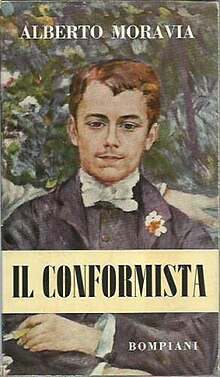Synopsis
Prologue
A boy named Marcello kills lizards in the yard near his home. He tries to coax his neighbor and friend Roberto into offering approval of this behavior, to no avail. They then fight, and Roberto leaves. After obtaining a slingshot, Marcello fires stones through the ivy that covers the fence around Roberto's house, only to find that he has killed their family cat instead of Roberto. Marcello is mortified not so much by his actions but by the "abnormality" of his sentiments.
Marcello later witnesses a fight between his parents. His father ultimately chases his mother around the house and attacks her in the bedroom, leaving Marcello torn between whether to rescue his mother or aid his father.
When the summer is over, Marcello is tormented by his classmates, who use his "effeminate" appearance to question his gender. One day, five classmates follow Marcello from school and try to force him to wear a skirt. However, their attack is interrupted by Lino, a chauffeur who then offers to drive Marcello home. En route, Lino appears to proposition Marcello, offering him a pistol in exchange for unspecified actions. Lino, who is actually a former priest de-frocked for indecent behavior, ultimately stops himself before initiating any actions with Marcello. He begs the boy to ignore him if he tries to speak to him again. Marcello does not fully understand what is happening.
His mother and cook discover that his father has vandalized a photograph of Marcello and her by poking holes through their eyes and drawing streaks of blood on their faces. This seems to mark the beginning of his decline into mental illness.
At school, Marcello decides that the pistol may help him gain his classmates' respect. So, he meets Lino again. This time, Lino locks himself in his room with Marcello and tells him he will not escape the abuse to come. During the struggle, Lino's gun comes loose and Marcello grabs it. When Lino asks Marcello to shoot, the latter complies and flees out the window, leaving the pistol behind.
Part I
In 1937 Marcello is an employee of the Italian Fascist government, looking through old newspaper clippings for information on the incident with Lino. He ultimately finds an obituary that blames the death on an accident during the cleaning of the gun.
Orlando, a colleague of Marcello, asks him to participate in a mission to Paris. A former professor of Marcello, Quadri, is an anti-fascist agitator, and the Italian government would like to infiltrate his organization. Marcello is also due to be married to someone named Giulia and offers to have his honeymoon in Paris so that his presence there would not raise suspicions.
Marcello also takes confession, despite his apparent atheism, as a prelude to the Catholic wedding Giulia expects. He confesses to murdering Lino, and the priest indicates that he can seek absolution if he feels true remorse for his actions – an emotion that Marcello does not appear capable of feeling.
In the days leading up to the wedding, Marcello's mother-in-law lavishingly praises him while his mother lives alone in squalor. For six years, his father has been in an asylum, where he believes he is one of Mussolini's top aides. On the way to see his father, Marcello's mother gives him a wedding present but indicates that she will not be attending the ceremony. Marcello and his mother make their monthly visit to his father, who neither recognizes them nor acknowledges their presence.
Part II
En route to Paris, Marcello makes a scheduled stop at a brothel in a small town in France, where he is to meet Orlando for further instructions. There, Marcello is mistaken for a client, causing him some embarrassment before Orlando arrives to reveal that the new plan is to kill Quadri. Marcello needs simply to confirm Quadri's identity to Orlando to fulfill his duties. While leaving, Marcello realizes he has forgotten his hat. When he goes to retrieve it, he finds Orlando with a prostitute to whom Marcello feels some attraction.
Marcello experiences the same feeling when he and Giulia visit Quadri. He happens to be married to Lina, a French woman who reminds him of the prostitute. Marcello starts believing he is in love with Lina despite her apparent dislike for him. Lina allows Marcello to begin to seduce her but always keeps him at arm's length, even telling him that she and Quadri are aware that he is a Fascist spy.
While Lina and Giulia head out shopping, he is accosted by an old man who first mistakes him for a beggar and then mistakes him for a homosexual, or perhaps a prostitute, making Marcello revisit the humiliation of the incident with Lino. When the man refuses to drive him back to the hotel, Marcello pulls his gun and demands to be let out of the Rolls.
Marcello's feelings for Lina intensify alongside a growing contempt for her when he sees her attempting to seduce Giulia and realizes that her interest in him is merely for show.
At a dinner covertly supervised by Orlando, Quadri asks Marcello to secretly post a letter for him on his way back to Italy, as Quadri's activities are monitored and the letter might be intercepted otherwise. Marcello refuses, and Quadri takes this as a sign of solidarity, as Marcello could have taken the letter and turned it over to the authorities instead. However, Marcello eventually confirms Quadri's identity to Orlando.
While arguing in a nightclub some time later, Giulia tells Lina she is not a lesbian and has no interest in an affair.
On his trip to Savoy, Quadri – as well as Lina, who left with him in response to Giulia's rejection – is killed by Orlando and his men.
Epilogue
Marcello has conflicted responses to his role in the death of the couple and tries to rationalize away his culpability. Years later, on the night Mussolini falls from power, Giulia reveals she has long suspected that Marcello was involved in the murders but is more sad for their own safety than for his victims or his duplicity.
The two go out for a drive and walk that evening, and while Giulia tries to convince Marcello to make love to her in a wooded area, a stranger calls to Marcello by name. He turns out to be Lino. Marcello screams at Lino and blames him for ruining his life by taking his innocence. Lino defends himself by arguing that the loss of innocence is inevitable and is merely a part of the human experience. That speech leads Marcello to the beginning of acceptance of his own non-conformity.
Marcello, Giulia, and their daughter later drive to the mountains to evade possible reprisals for his role with the government. En route, they drive into an air raid, and their car is strafed with bullets. Giulia and the daughter are killed in the first wave, and Marcello falls out of the car, wounded. Realizing his wife and daughter are dead, he waits for the second wave to return. Marcello then hears the planes approach.
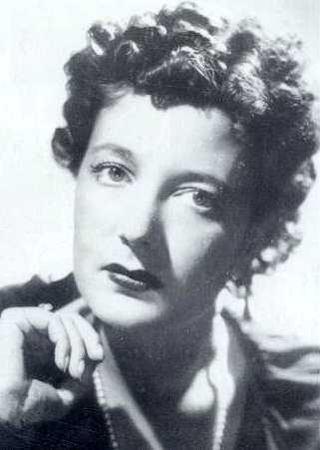
Clara "Claretta" Petacci was a mistress of the Italian dictator Benito Mussolini. She was killed by Italian partisans during Mussolini's execution.

Gian Galeazzo Ciano, 2nd Count of Cortellazzo and Buccari was an Italian diplomat and politician who served as Foreign Minister in the government of his father-in-law, Benito Mussolini, from 1936 until 1943. During this period, he was widely seen as Mussolini's most probable successor as head of government.

Seven Beauties is a 1975 historical black comedy drama Italian film written and directed by Lina Wertmüller and starring Giancarlo Giannini, Fernando Rey, and Shirley Stoler.

A Special Day is a 1977 period drama film directed and co-written by Ettore Scola, produced by Carlo Ponti, and starring Sophia Loren and Marcello Mastroianni. Set in Rome in 1938, its narrative follows a housewife (Loren) and her neighbor (Mastroianni) who stay home the day Adolf Hitler visits Benito Mussolini.
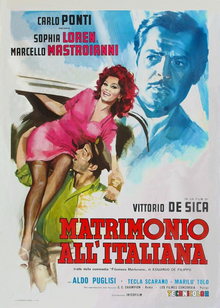
Marriage Italian Style is a 1964 romantic comedy-drama film directed by Vittorio De Sica, starring Sophia Loren and Marcello Mastroianni.

Giacomo Matteotti was an Italian socialist politician. On 30 May 1924, he openly spoke in the Italian Parliament alleging the Italian fascists committed fraud in the 1924 Italian general election, and denounced the violence they used to gain votes. Eleven days later, he was kidnapped and killed by Fascists.

The March on Rome was an organized mass demonstration in October 1922 which resulted in Benito Mussolini's National Fascist Party ascending to power in the Kingdom of Italy. In late October 1922, Fascist Party leaders planned a march on the capital. On 28 October, the fascist demonstrators and Blackshirt paramilitaries approached Rome; Prime Minister Luigi Facta wished to declare a state of siege, but this was overruled by King Victor Emmanuel III, who, fearing bloodshed, persuaded Facta to resign by threatening to abdicate. On 30 October 1922, the King appointed Mussolini as Prime Minister, thereby transferring political power to the fascists without armed conflict. On 31 October the fascist Blackshirts paraded in Rome, while Mussolini formed his coalition government.

Roberto Farinacci was a leading Italian fascist politician and important member of the National Fascist Party before and during World War II, as well as one of its ardent antisemitic proponents. English historian Christopher Hibbert describes him as "slavishly pro-German".

Love and Anarchy is a 1973 Italian film directed by Lina Wertmüller and starring Giancarlo Giannini and Mariangela Melato. The story, set in Fascist Italy before the outbreak of World War II, centers on Giannini's character, an anarchist who stays in a brothel while preparing to assassinate Benito Mussolini. Giannini's character falls in love with one of the women working in the brothel. This film explores the depths of his emotions concerning love, his hate for fascism, and his fears of being killed while assassinating Mussolini.

Ossessione is a 1943 Italian crime drama film directed and co-written by Luchino Visconti, in his directorial debut. It is an unauthorized and uncredited adaptation of the 1934 novel The Postman Always Rings Twice by American author James M. Cain, and stars Clara Calamai, Massimo Girotti, and Juan de Landa in the leading roles. It is often considered to be the first Italian neorealist film, though there is some debate about whether such a categorization is accurate.

Rome, Open City, also released as Open City, is a 1945 Italian neorealist war drama film directed by Roberto Rossellini and co-written by Sergio Amidei, Celeste Negarville and Federico Fellini. Set in Rome in 1944, the film follows a diverse group of characters coping under the Nazi occupation, and centers on a Resistance fighter trying to escape the city with the help of a Catholic priest. The title refers to the status of Rome as an open city following its declaration as such on 14 August 1943. The film is the first in Rosselini's "Neorealist Trilogy", followed by Paisan (1946) and Germany, Year Zero (1948).

Rachele Guidi, also known as Donna Rachele and incorrectly as Rachele Mussolini in the English-speaking world, was the second wife of Prime Minister of Italy and fascist leader Benito Mussolini.

The Conformist is a 1970 political psychological drama film written and directed by Bernardo Bertolucci, based on the 1951 novel of the same title by Alberto Moravia. It stars Jean-Louis Trintignant, Stefania Sandrelli, Dominique Sanda and Gastone Moschin. Set in 1930s Italy, The Conformist centers on a mid-level Fascist functionary (Trintignant) who is ordered to assassinate his former professor, an antifascist dissident in Paris. His mission is complicated after he begins an affair with the professor's wife (Sanda).

Benito Amilcare Andrea Mussolini was an Italian dictator who founded and led the National Fascist Party (PNF). He was Prime Minister of Italy from the March on Rome in 1922 until his deposition in 1943, as well as Duce of Italian fascism from the establishment of the Italian Fasces of Combat in 1919 until his summary execution in 1945 by Italian partisans. As dictator of Italy and principal founder of fascism, Mussolini inspired and supported the international spread of fascist movements during the inter-war period.
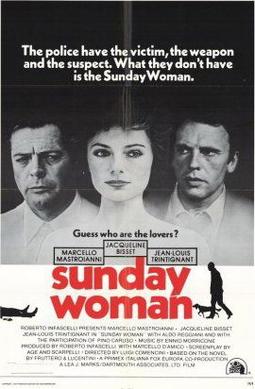
The Sunday Woman is a 1975 Italian thriller film directed by Luigi Comencini. It is based on the novel of the same name by Carlo Fruttero and Franco Lucentini. Set in Turin and starring Marcello Mastroianni, Jacqueline Bisset, and Jean-Louis Trintignant, the story covers the murders of two marginal individuals who had associated with the city's élite.

Melissa P. is a 2005 erotic drama film directed by Luca Guadagnino, from a screenplay by Guadagnino, Barbara Alberti and Cristiana Farina and a screen story by Guadagnino and Farina. It is based on the 2003 semi-autobiographical novel 100 colpi di spazzola prima di andare a dormire by Melissa Panarello. The film stars María Valverde, Fabrizia Sacchi, Primo Reggiani, Nilo Mur, Elio Germano, Letizia Ciampa, Davide Pasti, Alba Rohrwacher, Piergiorgio Bellocchio, Giulio Berruti, Marcello Mazzarella, Claudio Santamaria and Geraldine Chaplin.

All Screwed Up is a 1974 Italian comedy-drama film written and directed by Lina Wertmüller.
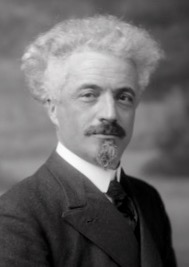
Marcello Soleri was an Italian politician and an officer of the prestigious Alpini infantry corps. He is widely viewed as one of the leading exponents of political liberalism in twentieth century Italy. Soleri was a Member of Parliament between 1913 and 1929. During 1921/22 he served successively as Italian Minister of Finance and as Italian Minister of War. After the fall of Mussolini he returned to government in 1944 as Italian Minister of Treasury under Prime Minister Bonomi.

The Bad Poet is a 2020 Italian biographical-drama film directed by Gianluca Jodice. The film is inspired by the book by the Italian journalist and writer Roberto Festorazzi, "D'Annunzio and the Fascist Octopus", first published by Minotauro in 2005 and republished by Silicio-Editoriale Lombarda in 2020. The film focuses on the last years of the poet Gabriele D'Annunzio, played by Sergio Castellitto, and on his ambiguous relationship with fascism.

Marcello Cesare Augusto Petacci was an Italian surgeon and businessman, the brother of actress Maria Petacci and of dictator Benito Mussolini's lover Clara Petacci.
